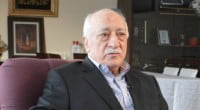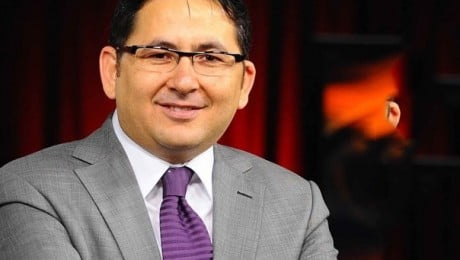Keyword: Turkey

Gülen offers more explanations of his views on continuing slander
“In a democratic order, if you are not allowed to express your views, then even the minimal requirements of being a democracy are not fulfilled. Imposing a type of rule with reference to religious notions will have serious political and legal repercussions,” Fethullah Gülen said.

Individuals can force change
Instead of Erdoğan’s accusations that the Hizmet movement had plotted to unseat his government, couldn’t it have been a handful of good men and women within the bureaucracy, i.e., the judiciary and the police, who leaked the investigation documents on Dec. 17 to the public to prevent these crimes from being covered up?

[Part 5] Gülen says ballot box is not everything in a democracy
Islamic scholar Fethullah Gülen, who has inspired the popular civic and social movement called Hizmet, said the ballot box is not everything, urging his followers to not stick to only one but to cast their votes freely based on their personal conviction. He added that focusing on the ballot box only makes some people comfortable in telling lies.

‘Erdoğan to take action against Hizmet after restructuring judiciary’
Despite Prime Minister Recep Tayyip Erdoğan’s continual accusations that the faith-based Hizmet movement is plotting against him through recordings that have implicated Erdoğan and his son Bilal in bribery and corruption, the prime minister has refrained from filing any lawsuits against members of the Hizmet movement, which has raised questions from analysts.

Islamic scholar Gülen criticizes Turkish gov’t response to Gezi protests
Gülen said he had heard of Turkish officials’ efforts to “undermine Turkish schools abroad” which are run by his movement in many countries across the world. “Unfortunately, this appetite for destruction pushes all fair limits. These schools were established through the great self-sacrifice of the people of Anatolia,” he said.

Why is the government freeing bloody murderers?
The government is continuing to act in panic. In the last couple of months, every single step it has taken has somehow been related to the graft probe, and they all are being taken to suffocate the corruption investigation. The government is freeing Ergenekon suspects willingly and on purpose to create an alliance against the so-called “parallel state,” as they call the movement inspired by Fethullah Gülen.

What else should Gülen say?
Fethullah Gülen’s stance on corruption and anti-democratic practices has never changed. Osman Şimşek, the editor of herkul.org, which broadcasts and publishes Gülen’s speeches, recently published a letter that Gülen sent to Erdoğan in May 2006. In the letter, Gülen warns the prime minister that his government had begun to deviate from its democratic line.

Islamic scholar Gülen rejects involvement with graft probe and wiretappings
“If among those who conducted the graft investigations were some people who might be connected to the Hizmet movement, was I supposed to tell these people, ‘Turn a blind eye to the corruption charges?’ It appears to me that some people were expecting me to do this. Did they expect me to do this? How can I say something that would ruin my afterlife? How else can I act?” Fethullah Gülen said.

AK Party gov’t behind anti-Hizmet declaration, leaked recordings allege
A joint declaration by a number of civil society organizations to proclaim open support for the government during debates over the closure of dershanes (prep schools) was concocted by the advisors of the Prime Minister Recep Tayyip Erdoğan and some associations were forced to lend their support, according to a number of new leaked recordings.

PM’s son: Dad, let’s initiate an operation against Hizmet’s senior members
Prime Minister Recep Tayyip Erdoğan’s son Bilal allegedly urged his father to trigger an operation to detain prominent figures of the Hizmet movement in response to an ongoing graft and bribery investigation implicating Erdoğan, his family members and a number of ministers and businessmen close to him.

Turkey’s business world weary of gov’t pressure, says Kalkavan
The businessman Kalkavan said that the government’s way of dealing with the corruption allegations has been “incomprehensible,” and that he had difficulty explaining to his foreign associates about recent purges of hundreds of police officers and dozens of investigators.

Collective punishment [of Hizmet movement]
The problem is not about the failure of the members of the Hizmet movement to obey orders from their superiors in the public service but about the claim that the prosecutors and police chiefs who conducted the graft and bribery investigation are members of the Hizmet movement — a claim which has yet to be proven.




















